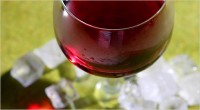Grapevine: A Centuries-old Winemaking Dilemma for European Women
 Last week, I discussed the changing role of women in the American wine industry. Significant strides have been made in the last quarter century by women winemakers who have been given the opportunity to ply their trade. These women have been able to penetrate the wine industry based on their proven skill and talent.
Last week, I discussed the changing role of women in the American wine industry. Significant strides have been made in the last quarter century by women winemakers who have been given the opportunity to ply their trade. These women have been able to penetrate the wine industry based on their proven skill and talent.
However, in western Europe, women have attained success not through talent but through the fickle finger of genealogy or marriage.
In western Europe, the culture and ideology concerning wine differ greatly from that in the United States. It is highly political and rooted in ages-old tradition. The role of women in wine has been steeped in subservience at worst and happenstance at best. Women have been relegated to raising families or assisting male winemakers in the field and cellars. It is a culture that is difficult to modify, although, ironically, happenstance is playing a growing role in tilting the scales.
 The wine culture of small wineries in western Europe is steeped in a tradition of male inheritance and female discrimination. There are wineries that have been owned and operated by the same family for centuries. The mantle of winemaker has been passed down to the first born male in each successive generation.
The wine culture of small wineries in western Europe is steeped in a tradition of male inheritance and female discrimination. There are wineries that have been owned and operated by the same family for centuries. The mantle of winemaker has been passed down to the first born male in each successive generation.
The irony is that women may be equally, or better, suited for winemaker roles than men.
First, they tend to think differently. Popular psychology generally ascribes to women a right-side-of-the-brain thought process (creative, intuitive and sensory), compared to men’s left-side-of-the-brain thought process (objective, analytical and detail focused). If one accepts this mapping, women tend to be more focused on producing an ethereal finished product that comes together in the final stages of its creation, rather than one whose individual components have been meticulously crafted by a male in lockstep from the vineyard to the aging cellar.
Secondly, fine wine is the result of a winemaker’s ability to identify the nuances of the aroma and flavor components of a wine as it is being crafted. Studies have shown that women have a greater sensitivity to smell and taste than men, due to more sophisticated olfactory senses and greater numbers of taste buds. With these innate tools, women are better able to identify individual components of a wine and create a more sophisticated and complex wine.
The end result? A significant number of the most prestigious and highly regarded wines in western Europe are produced by women winemakers.
Of course, these factors tend to pigeon-hole men and women winemakers and create stereotypical expectations for gender wines. This is far from the truth. Great wines are crafted by great people, but all need equal opportunity, which has been sorely lacking for women in western Europe.
The barriers for women are being weakened with each passing year as the old line discriminating male winemakers cede control to the more open-minded next generation.
Thankfully, there are success stories. However, too many of these are the result of women being thrust into situations brought about by family deaths or by male siblings who surreptitiously walk away from the family winery. Examples include the Veuve Cliquot, who took over her husband’s Champagne business upon his death in 1805 and single-handedly made it one of the most revered wineries in France; Lalou Bize-Leroy, who, in 1975, inherited and then catapulted Domaine de la Romanée-Conti in Burgundy, France, to become one of the most famous wineries in the world before being forced out and starting her own (very) successful winery; and Francesca Planeta, currently the 17th generation winemaker–and first female–of the highly regarded eponymous Sicilian winery.

Other success stories abound and I will present a cross section across Europe and the New World next week.
Nick Antonaccio is a 35-year Pleasantville resident. For over 15 years he has conducted wine tastings and lectures. He is co-host of “Glass Up, Glass Down,” a local cable television series on wine and food; he also offers personalized wine tastings and wine travel services. Nick’s credo: continuous experimenting results in instinctive behavior. You can reach him at nantonaccio@theexaminernews.com or on Twitter @sharingwine.
